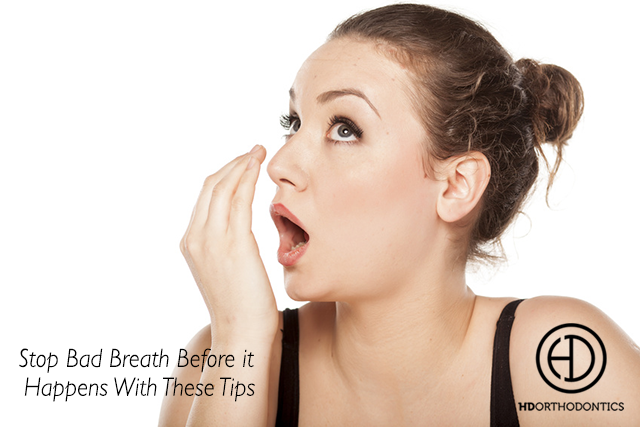The Most Common Causes of Bad Breath

Long Beach, CA – Many people may think bad breath, also referred to as halitosis, is simply caused by failing to take proper care of one’s oral health. While that is true for some people, sometimes, the food we eat and other lifestyle habits can also be a contributing factor to bad breath.
They say you are what you eat, and often your breath is what you eat. All of the food you consume gets broken down first in the mouth when you chew. If you eat foods that have a strong odor (think onions or garlic), it’s highly likely that those odors will linger in your mouth.
You can brush and rinse with mouthwash to mask the odor, but until the food has been completely digested and leaves your body, those will only mask the odors. Did you know the food you consume can be absorbed into the bloodstream, where it is transferred into your lungs? From there, it gets expelled, but until it’s all out of your system, you may notice your bad breath lingers.
The most common source of halitosis is from failing to brush and floss every day. Dentists recommend brushing at least twice a day and flossing once a day because together, these remove food particles that get left in your mouth after eating. If you don’t remove these, the food that collects in the mouth will begin to decay, resulting in a not very pleasant odor.
If you suffer from dry mouth, also known as xerostomia, you may notice you have persistent halitosis associated with it. Saliva helps to wash away food particles and other bacteria from our mouths, which in turn helps to clean our breath. Dry mouth can occur due to several causes including problems with the salivary glands, mouth breathing, or even from certain medications. Your dentist can offer ways to help produce more saliva to help ward off the bad breath that can be associated with it.
Bad habits, such as tobacco use, can also lead to bad breath. In addition to the odor created by the tobacco products themselves, tobacco use causes dry mouth and increases your risk of gum disease, which can also increase your likelihood of suffering from bad breath.
Crash diets, including fasting, can also make you more prone to halitosis. When fat breaks down, it creates chemicals called ketones. Ketones have a strong aroma, and can lead to bad breath.
Additionally, some medical conditions, such as liver disease, metabolic diseases, gastroesophogeal reflux disease (GERD) and some cancers can cause bad breath.
In my office, part of treating every patient is to discuss preventive measures they can take to keep their mouths healthy, which will in turn keep their breath as fresh as possible. Here are some tips we give out patients:
- Brush, floss, rinse! Brush at least twice a day using a fluoride toothpaste and floss at least once a day. Don’t forget to brush your tongue too, because debris can remain there, leading to bad breath. After flossing, use an antibacterial mouthwash like Listerine or Crest Pro Health to rinse away any remaining bacteria or food particles.
- See your dentist at least twice a year. Regular visits with your dentist can help identify and treat problems such as gum disease or dry mouth before they become more serious problems, and can help you curb bad breath that may be associated with them.
- Stop using tobacco products.
- Drink plenty of fluids throughout the day, focusing mainly on water. This will help ensure your mouth stays moist and plenty of saliva is produced to help wash away particles that might remain after eating or snacking.
- Chewing sugarless gum or sucking on a sugarless candy can also help stimulate saliva production. Ask your dentist about products containing xylitol, a natural sugar substitute that can stimulate saliva.
- Keep a list of all medications you take to share with your dentist, including any over-the-counter or all-natural supplements. Likewise, if you think your diet may be contributing to your halitosis, keep a food log. Your dentist can help determine if any of the medications you take or foods you regularly eat may be contributing to your bad breath.
- Consider purchasing Biotene rinse. This alcohol-free rinse is mouth-moisturizing and provides soothing, lubricating relief while refreshing your mouth at the same time.

